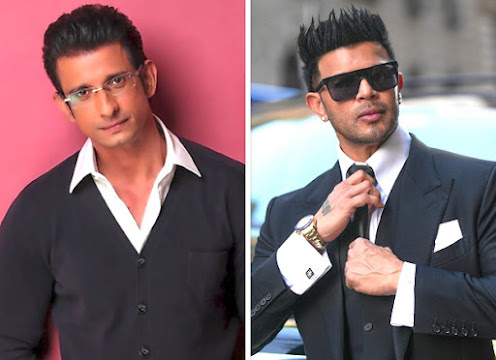A rookie cop struggling to come to grips with the demands of a high-pressure job and its deleterious impact on his personal life is the central figure in Kaalkoot, an understated police procedural created by Arunabh Kumar and directed by Sumit Saxena.
The eight-episode investigative drama series - it is streaming on JioCinema - is as much about an inquiry into a horrific acid attack outside a small-town college in Uttar Pradesh as about the scourge of patriarchy and putrid masculinity that infects the worldview of men charged with protecting the law.
The opening episode of Kaalkoot, has a scene in which a bunch of policemen attend a gender sensitivity training programme. A few of them make snide remarks as the session is introduced. Their laidback attitude instantly reveals why the town has seen a spate of crimes against women.
The show also factors in domestic violence, homophobia, unsafe abortions, female infanticide, cybercrime, jilted lovers, depredations of corrupt and cynical politicians and flawed policing while it depicts a probe into the circumstances in which a college girl is attacked with acid. A case of biting off too much? May be. The writing is strong enough to keep matters in check.
The story, primarily centred on the investigation, unfolds at a deliberate pace while the victim lies near-comatose in a hospital with severe burns on her face and parts of her upper body. The male protagonist's negotiations with the demons of his own mind and the entanglements that he gets into in the workplace and at home constitute another large chunk of the narrative.
Vijay Varma, in a garb that allows no room for heroic showboating, leads the charge in a measured and highly effective manner to prop up a reasonably absorbing, if a touch ponderous, show that leans heavily on the actor getting the nuances of the role right. That he does that - and a little more - is half the battle won for a series that is mindful of the necessity to be on point with its messaging.
The lead actor is ably supported by Shweta Tripathi Sharma (who spends a large part of the series in a supine and silent state), Seema Biswas, Yashpal Sharma and Gopal Datt, all perfectly in sync with the realistic drift of the story.
The screenplay by Sumit Saxena, Arunabh Kumar and Karan Singh Tyagi does not come up with big surprises and hard-hitting blows, but it does foray, directly and indirectly, into essential themes that subtly bring out the hero's struggle not to let an environment steeped in misogyny get to him and change the way he views the world.
One of the most interesting aspects of Kaalkoot, is the music. Both the background score and the songs, composed by Raghav-Arjun, lend the show an earthy, rooted feel that serves to heighten its relatability quotient even as it explores the darkness at the heart of the town.
One strand of the story centres on a woman (Suzanna Mukherjee) who SI Tripathi and his mother - especially the latter - grow close to. Marriage is on the cards between her and the ever-sceptical policeman. But as things pan out, the relationship hits hurdles that force the cop to take another hard look at himself in the mirror.
Vijay Varma dons a guise that is the exact opposite of the psychopath he played in Dahaad. He takes effortlessly to the angularities of the doubt-ridden policeman who must deal with a range of prickly issues in his quest for the truth about the acid attack - and himself.
The hero isn't a brash, bad-tempered Bollywood-style man in uniform. He is tentative, soft-spoken, anything but trigger happy, even a mamma's boy and a guy who bathes in warm water. You've got to be more virile, his superior quips. The younger cop has no riposte because he probably does not feel the need for one.


